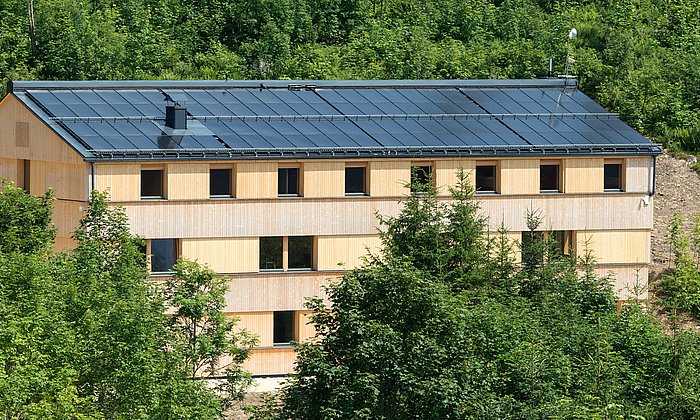New study shows dire outlook for the future of forests
The forest is changing

The record-heat summers of 2018 and 2019 have done massive damage to the forests of Central Europe. In Germany alone, more than 490,000 acres of forest died. In Australia, the last few months saw forest fires of unprecedented dimensions and large areas in the Amazon rainforest burned down as well.
However, some satellite data and model calculations suggest that photosynthetic activity is increasing – the so-called “global greening.” Furthermore, long-term observation has shown that trees – particularly in Central Europe – have better growing conditions than they had just a few decades ago; a result of shorter winters and a higher CO2 concentration in the atmosphere. So what will the forest of the future look like?
Effects of global change
Global change is affecting both the growth and death of trees. The study, to which Rupert Seidl, Professor for Ecosystem Dynamics and Forest Management at TUM, contributed, examines eight central factors that influence forest demographics.
The researchers considered changes in temperatures and CO2 concentrations as well as humidity, drought, forest fires, windthrow, insects and land use as drivers of future forest development. “Our analyses show, that we are experiencing a shift from mostly positive effects of global change to a period of increasing limitations for trees,” explained Rupert Seidl.
Forest decline continues
While positive effects on the growth of trees are bound to occur with high variability and substantial local deviations in the future, tree mortality shows a consistently negative trend across all factors. Disruptions such as forest fires, insect damage, windthrow events and droughts will increase in frequency and severity because of climate change.
“Tree mortality will continue to increase“, predicted Seidl and added: “Large trees are particularly affected, as they are more exposed to wind; also, it is harder for them to continuously supply their leaves with water from the ground.”
Forests are changing
In the future, forests are thus likely to contain smaller trees, a lower tree density and less biomass. This could have substantial effects on the climate regulating function of forests: Less biomass means that a lower amount of atmospheric carbon is stored in forests, which could further accelerate climate change.
Other ecosystem services provided by forests – filtering drinking water and protecting from natural hazards such as mudslides and floods, among other things – may decline in the light of these developments. These ecosystem services, however, are of great importance to society, especially in densely populated areas such as Central Europe. The loss of old forests and large trees will also affect biodiversity.
Global change and its consequences threaten the sustainable provisioning of ecosystem services to society, and thus pose a great challenge for forest management.
Nate G. McDowell, Craig D. Allen, Kristina Anderson-Teixeira, Brian H. Aukema, Ben Bond-Lamberty, Louise Chini, James S. Clark, Michael Dietze, Charlotte Grossiord, Adam Hanbury-Brown, George C. Hurtt, Robert B. Jackson, Daniel J. Johnson, Lara Kueppers, Jeremy W. Lichstein, Kiona Ogle, Ben Poulter, Thomas A.M. Pugh, Rupert Seidl, Monica G. Turner, Maria Uriarte, Anthony P. Walker, Chonggang Xu (2020): Pervasive shifts in forest dynamics in a changing world. In: Science 368. DOI: 10.1126/science.aaz9463
Technical University of Munich
Corporate Communications Center
- Dr. Katharina Baumeister-Krojer
- Katharina.Baumeister@tum.de
- +49-8161/71-5403
- presse@tum.de
- Teamwebsite
Contacts to this article:
Prof. Dr. Rupert Seidl
Technical University of Munich
Department of Ecology and Ecosystemmanagement
Hans-Carl-von-Carlowitz-Platz 2
85354 Freising
Tel.: +49.8161.71.4690
E-Mail: rupert.seidl@tum.de

